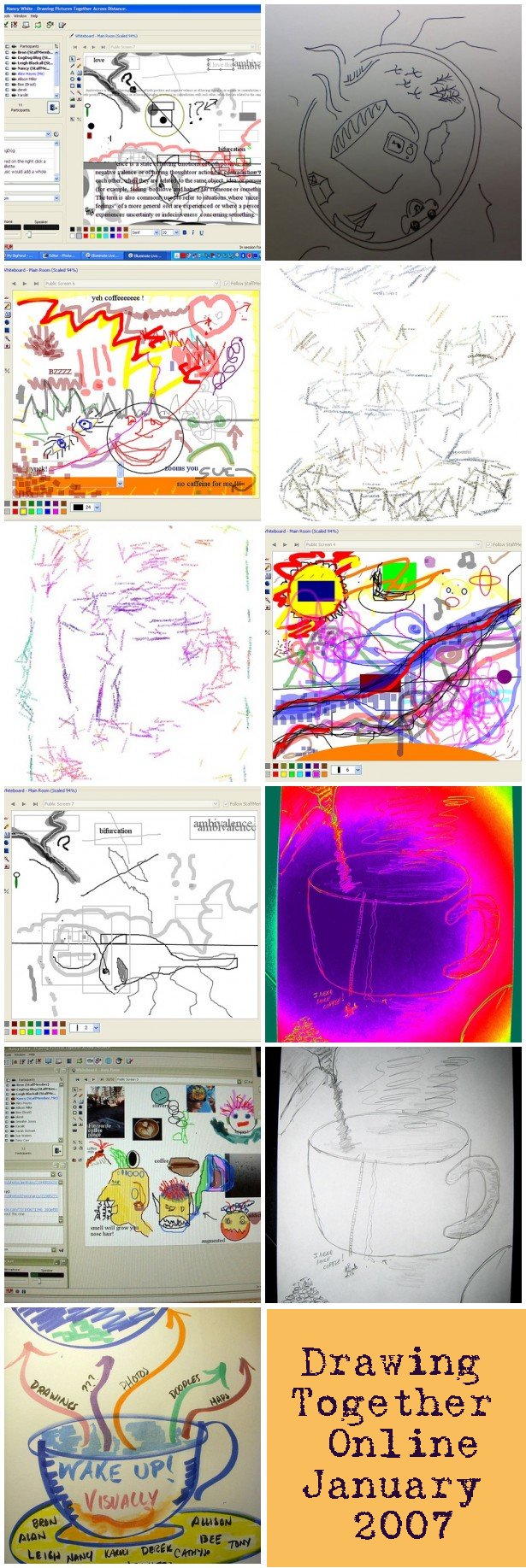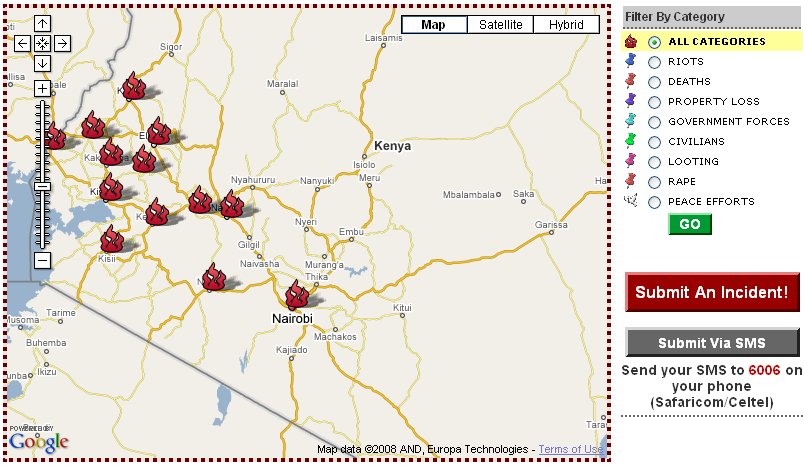Argh, I have been wanting to finish this blog post. Work is crazy, so I can’t be as complete as I’d like to be, but I have to get this out. There is so much incubation going on in my head about visuals, and not enough time to release it all into the wild!
This past week as part of the Future of Learning in a Networked World 08 “event” we did a session on Drawing Together Online. Leigh Blackall arranged for us to use Otago Polytechnic’s (corrected – thanks Leigh) Elluminate room. Elluminate has a shared white board. Hmmm… possibilities. Could we draw on paper then take digital photos or scans and upload to Flickr? Draw together on the white board? The key was I wanted to create an irresistible invitation for everyone to draw something during our hour together.
We started off with a few ruminations and images from me. Leigh gave us a short lesson on drawing human figures then we just jumped in. And the white board became the center of attention. At first it was chaotic. Then we played with constraints. A theme. A request to work smaller and slower. We reflected on how we felt looking at the images. How we felt when we could not find space to make our mark, or when it was erased by someone else – and not being able to know quickly who it was. We talked about our inner censors, keeping us from drawing. How they came to us as childhood melted into adulthood.
I had a great time. For me, it was a wonderful session. The Elluminate Recording is here. A montage of some of our drawings is below as well as a link to Flickr: Photos tagged with drawingtogether
I invite any of the people who played together that day to share your impressions as well. Some of us said we want to do more exploration of drawing together online. YES!
1. flnw_ambivilance_2, 2. Commute, 3. flnw_coffee, 4. My Texturized Cofee Picture, 5. cogdog’s texturized coffee picture, 6. flnw_boundaries, 7. flnw_ambivilance, 8. I Need MORE COFFEE (PicNik-ed), 9. Our first collaborative drawing, 10. I Need MORE COFFEE, 11. Coffee, 12. Our first collaborative drawing
While we are thinking about visual thinking together, here is another amazing link of a video that really uses visual thinking, from Christian Nold at PopTech. follow that link to take a look at this video. (Edited to remove the embed because it kept auto-playing, driving some of us nuts.)


